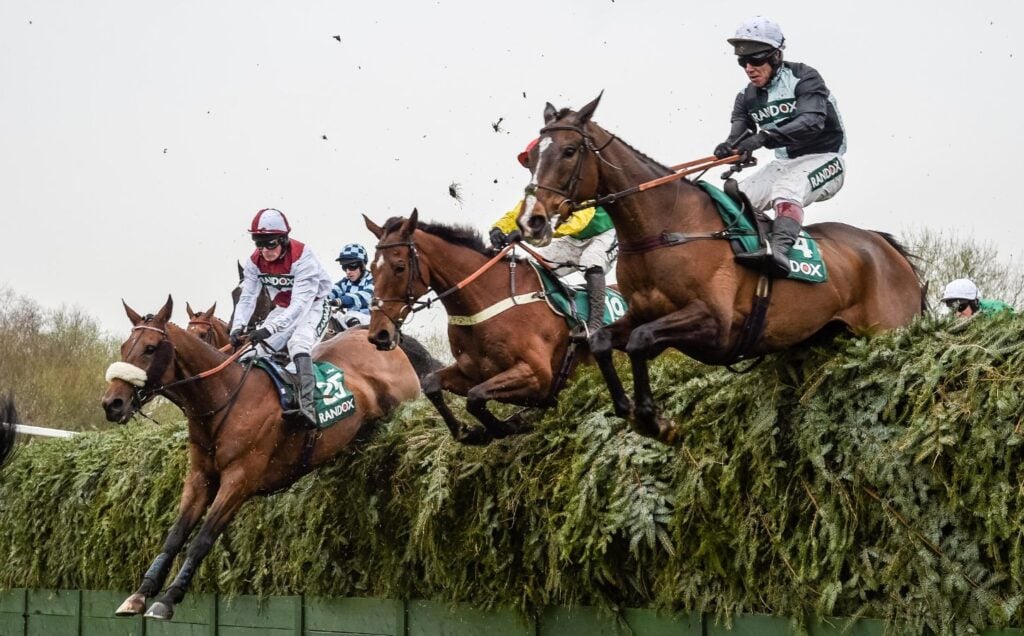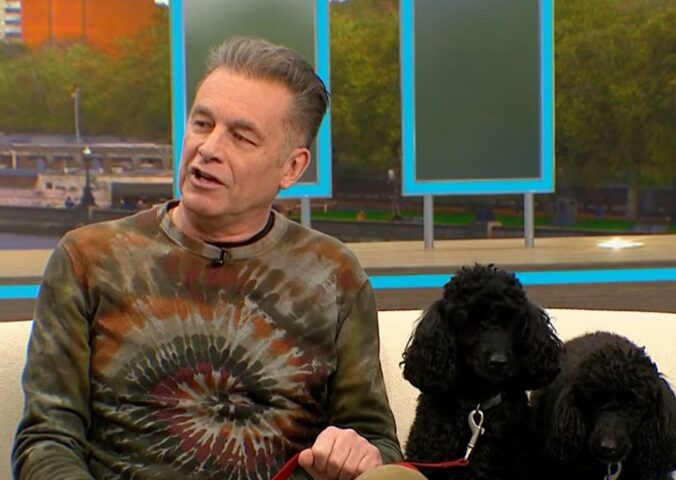On April 2, less than two weeks before the Grand National was set to take place, the Mail on Sunday published an exposé of Animal Rebellion’s plans to disrupt it.
Labeling the group a “Vegan Mob,” the front page splash detailed the group’s apparent plans to “sabotage” the horse race. An undercover reporter claimed that a group of around 100 people were set to carry out the protest.
Taking to social media after the report was published, Animal Rebellion confirmed that it still planned to protest at the race, and urged like-minded activists to join them in the peaceful action.
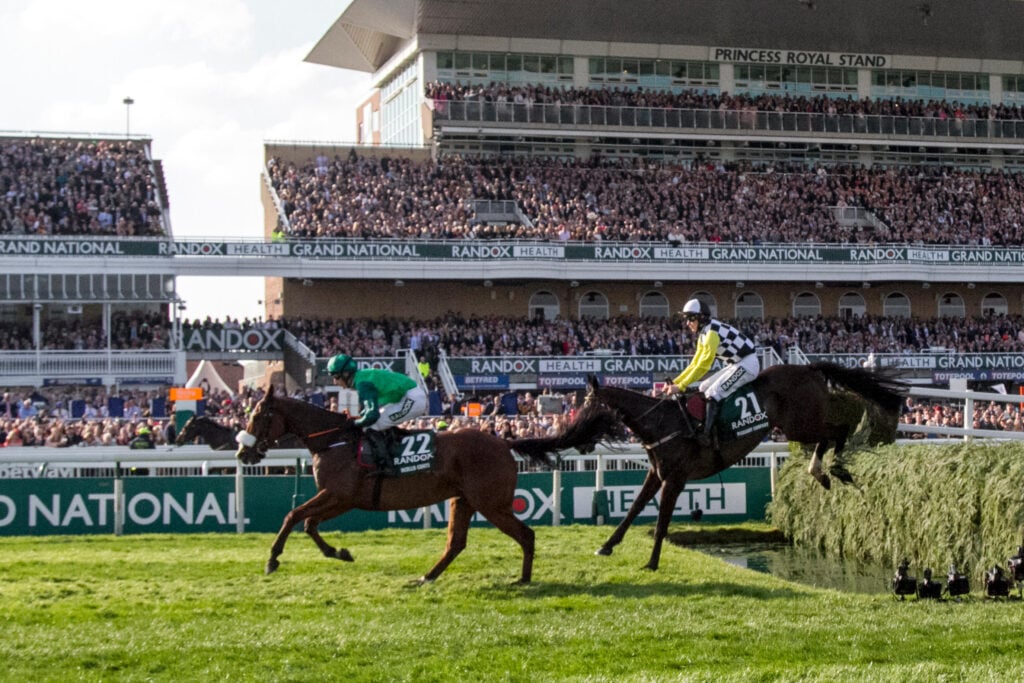
Background to the Grand National
The world-famous annual event runs over three days at Aintree Racecourse in Liverpool, UK. The main race, which this year takes place on Saturday, April 15, sees 40 horses run a four mile, two-and-a-half furlong race track (four miles 514 yards, or 6.907 kilometres). The track is complete with 16 fences (14 of which the horses jump twice).
In total, around 150,000 people attend the Grand National each year. A further 600 million watch it on TV around the world.
The race has been taking place since 1839. Among certain parts of society, it’s a much-loved British tradition. In others, it’s deemed a cruel and unnecessary event.
“The Grand National is a huge symbol of how utterly broken our relationship to other animals and nature is,” Nathan McGovern, Animal Rebellion spokesperson tells Plant Based News.
Whether you’re part of the “vegan mob” or just want to learn more about the horse racing industry, here’s what you need to know about Animal Rebellion’s upcoming action.
Animal Rebellion’s Grand National plans
The group is planning a peaceful protest to disrupt the Grand National. It’s doing so to raise awareness of the cruelty inherent in using animals for sport, and to urge the public to reconsider their attitude toward non-human species.
“The race is, arguably, the biggest of its kind in the world and we aim to send a clear message that using animals for entertainment, or for food, has to end,” McGovern says. “The need to reevaluate the way we treat other animals and our natural world is critical to tackle the climate, ecological, and animal emergencies.”
The group is calling on members of the public to join them at 9:30am outside Aintree on Saturday, April 15. According to McGovern, they will be “peacefully showing our love for the horses and attempting to come between them and harm on the track.”
Animal Rebellion is hoping that hundreds of like-minded people will join them in the action, “who can no longer ignore the horrific way we exploit animals for fun at the horse races or, indeed, for food on our plates.”
Why is Animal Rebellion protesting the Grand National?
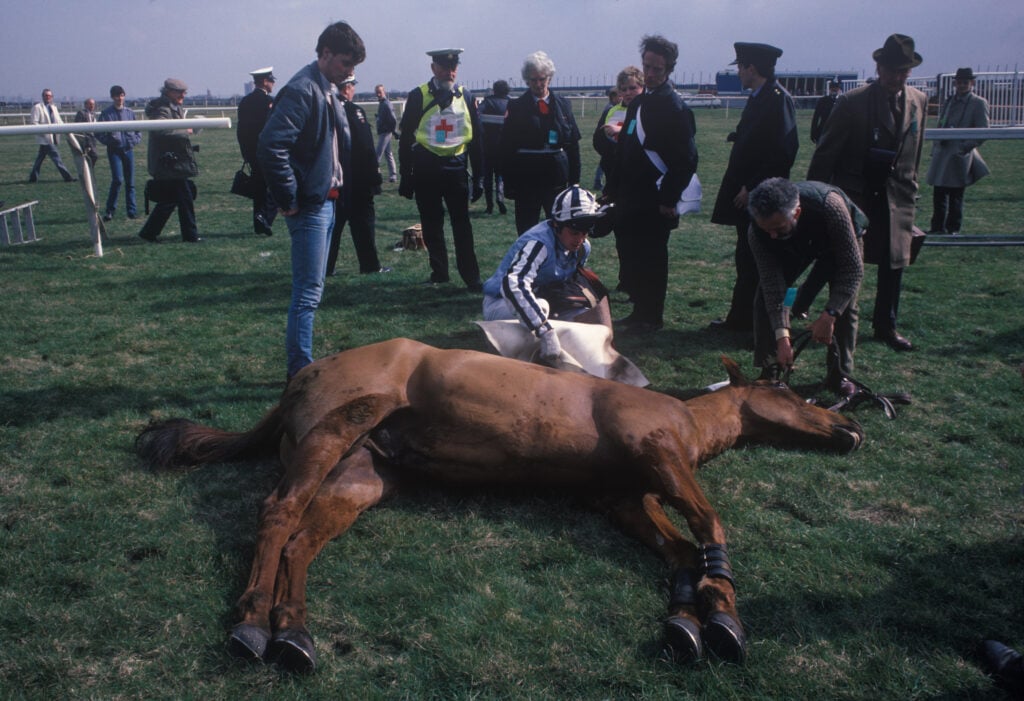
Animal Rebellion is one of a number of animal rights groups to criticize sports or entertainment industries that rely on the exploitation of animals.
The group deems all horse racing cruel, but the Grand National in particular is a highly dangerous race for horses. Injuries are commonplace, and animals will often be euthanized if they don’t succumb to injuries on the track.
Since the year 2000, 15 horses have been killed in the main Grand National Race. A further 20 horses have been killed on other races held during the three-day event. In addition, 24 horses have been killed on the Mildmay Course during the Grand National Meeting. In total, 59 horses have lost their lives in just over two decades of racing.
‘Find a way to love animals without harming them’
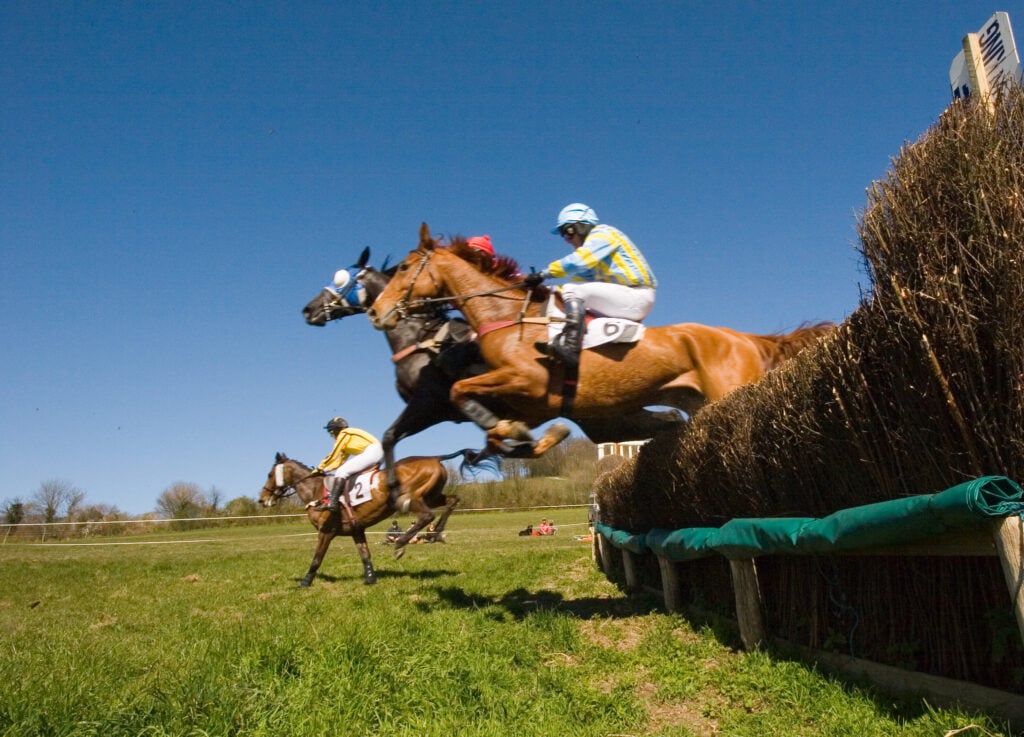
According to Animal Rebellion, the Grand National is just one example within a hugely problematic industry.
“The horse racing industry needs to take a look at itself in the mirror and find a way to love animals without harming them,” McGovern says. “We’re a nation of animal lovers and a great deal of people watch the horse races because of this.”
He goes on to point out that a horse dies every two – three days on UK race tracks, adding that this “cannot be ignored.”
“If we make wholesale changes to our food system and rewild vast amounts of land, we could see wild horses return to this country,” he says. “We can create a way of appreciating these animals without racing them to death.”
Police presence at Grand National
After the Mail exposé was published, it was reported that police were planning to deal “robustly” with any disruption at the race.
“We respect the right to peaceful protest and expression of views, but public order or criminal offences will not be tolerated and will be dealt with robustly,” a statement from Merseyside Police reads.
The force added that it had been working with The Jockey Club “for a number of months… to ensure that any necessary plans and processes are in place to deal with any incidents that may arise.”
Those interested can sign Animal Rebellion’s petition to cancel the Grand National here.
